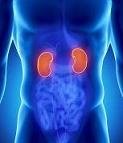Advertisment
BTS 2013 Report – Understanding the causes of kidney transplant failure: the dominant role of antibody-mediated rejection and non-adherence

by Maria Dalby reporting on the presentation by Declan de Freitas, Beaumont Hospital, Dublin, Ireland. The majority of failed renal grafts can be attributed clinically or histologically to antibody-mediated rejection. In a large proportion of these cases, non-adherence is a major factor in the development of antibodies.
Dr Declan de Freitas, currently at Beaumont Hospital in Dublin, is a co-author on a recently published study carried out at the University of Alberta in Edmonton, Canada, which has demonstrated the extent to which non-adherence behaviour contributes to rejection and graft failure (1).
The study comprised 315 kidney transplant recipients who were followed prospectively after being biopsied on clinical indications. A total of 412 biopsies were collected, at intervals from 6 days to 32 years post-transplant (median follow-up 31.4 months). During the study, 60 kidneys were lost to renal failure and 14 patients died with a functioning graft. The protocol included recording of non-adherence, defined as either admitted by the patient or suspected by the investigator and entered on the clinical notes.
Histological evaluation showed either antibody-mediated rejection (AMR; including probable AMR and mixed rejection) or glomerulonephritis in the majority of the biopsies (28% and 10%, respectively). T-cell-mediated rejection and acute kidney injury were rare. Biopsies taken later than 6 months post-transplant were more likely to show signs of AMR or mixed rejection. Biopsies from the 60 kidneys that failed showed that AMR or mixed rejection was the main diagnosis in this group.
Non-adherence emerged as a clear signal in the histological evaluation – just as rejection was found to be time-dependent, non-adherence was more likely to be found in biopsies taken beyond 1 year post-transplant. In one third of the failed grafts (19/60 kidneys; 32%), non-adherence had been recorded on the clinical notes. A per-protocol analysis in which biopsy diagnoses, HLA antibody status and clinical data were used to determine attribution in each case of graft failure, revealed four principal causes of graft failure: rejection (36 cases; 64%), glomerulonephritis (10 cases; 18%), polyoma virus nephropathy (4 cases; 7%) and intercurrent events (6 cases; 11%). Nearly half of the grafts lost due to rejection (47%) were found to have been recorded as non-adherent by the investigator. All recorded cases of rejection and non-adherence were found to have donor-specific antibodies (DSAs) or panel-reactive antibodies. Overall, non-adherent patients were more likely to have DSAs both on early and late biopsies. The investigators concluded that non-adherence behaviour plays an important role in the development of rejection and graft failure, and offers the potential for interventions that can make a dramatic difference to the long-term outcome at no additional cost.
1. Sellares J, de Freitas DG, Mengel M, Reeve J, Einecke G, Sis B, et al. Understanding the causes of kidney transplant failure: the dominant role of antibody-mediated rejection and nonadherence. American journal of transplantation : official journal of the American Society of Transplantation and the American Society of Transplant Surgeons. 2012;12(2):388-99. Epub 2011/11/16.





